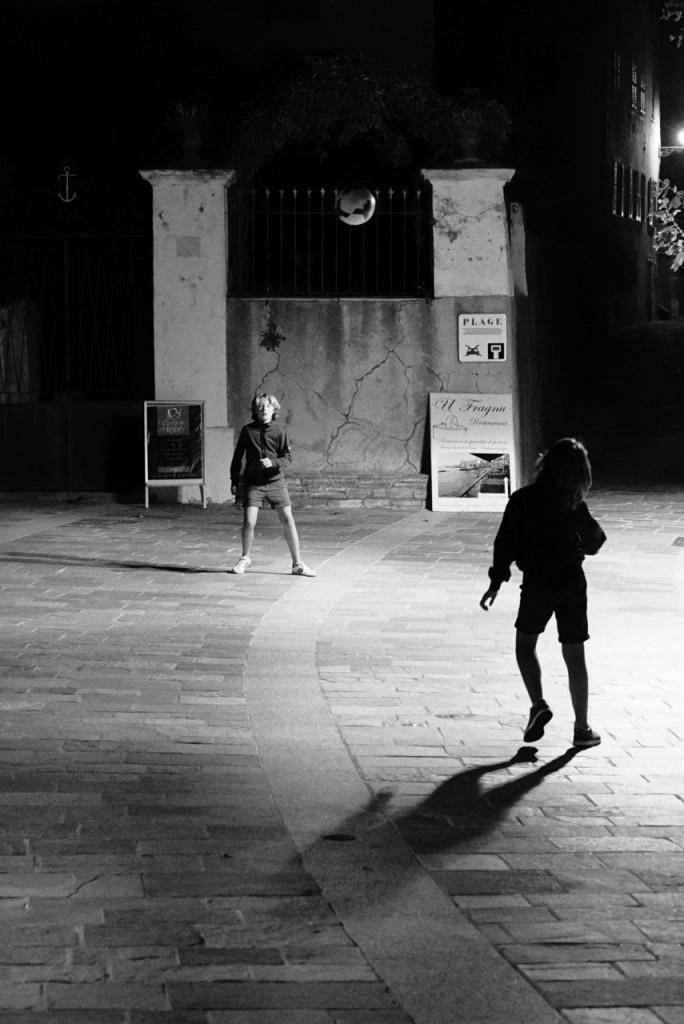Chuck Wolfe champions the role of France's attachment to place as a laboratory for decoding the essential elements of urbanism.
 In the first in an illustrated series, Wolfe explores the recent premise of the New York Times' Roger Cohen: In France, perception of classic physical space is evolving as the role of cyberspace expands.
In the first in an illustrated series, Wolfe explores the recent premise of the New York Times' Roger Cohen: In France, perception of classic physical space is evolving as the role of cyberspace expands.
Cohen wrote in early July about place-based aspects of the French struggle with modernity, noting:
[N]owhere else is the particularity of place and the singularity of a person's attachment to it more important.
Writing from France periodically through November, Wolfe follows Cohen's comment with a call for special attention to "place-decoding", using French cities and towns as a laboratory. Wolfe notes:
There is nowhere better, in my opinion, to see the old world basis for the role of urban places, and how they define who we are in the urban context... [I]n the narrow streets and pass-through places of old world urban cores, latent answers to urban riddles await our quizzical view. These answers are worthy of histories, sensational fiction and last, but not least, the inquiry of urbanists.
Consider a Dan Brown approach to the study of cities he suggests, "something we could easily call 'place-decoding'."
Place-decoding, Wolfe argues, is the necessary prerequisite to placemaking going forward. He presents five photographs, accompanied by five topical questions, and concludes:
[T]hese are the riddles of the old world worth illustrating and asking again, in places where their inspiration remains on eternal display -- begging for rediscovery, decoding and translation to modern life.
FULL STORY: How to Place-Decode the Elements of Urbanism

Alabama: Trump Terminates Settlements for Black Communities Harmed By Raw Sewage
Trump deemed the landmark civil rights agreement “illegal DEI and environmental justice policy.”

Planetizen Federal Action Tracker
A weekly monitor of how Trump’s orders and actions are impacting planners and planning in America.

How Atlanta Built 7,000 Housing Units in 3 Years
The city’s comprehensive, neighborhood-focused housing strategy focuses on identifying properties and land that can be repurposed for housing and encouraging development in underserved neighborhoods.

In Both Crashes and Crime, Public Transportation is Far Safer than Driving
Contrary to popular assumptions, public transportation has far lower crash and crime rates than automobile travel. For safer communities, improve and encourage transit travel.

Report: Zoning Reforms Should Complement Nashville’s Ambitious Transit Plan
Without reform, restrictive zoning codes will limit the impact of the city’s planned transit expansion and could exclude some of the residents who depend on transit the most.

Judge Orders Release of Frozen IRA, IIJA Funding
The decision is a victory for environmental groups who charged that freezing funds for critical infrastructure and disaster response programs caused “real and irreparable harm” to communities.
Urban Design for Planners 1: Software Tools
This six-course series explores essential urban design concepts using open source software and equips planners with the tools they need to participate fully in the urban design process.
Planning for Universal Design
Learn the tools for implementing Universal Design in planning regulations.
Jessamine County Fiscal Court
Caltrans
Institute for Housing and Urban Development Studies (IHS)
City of Grandview
Harvard GSD Executive Education
Toledo-Lucas County Plan Commissions
Salt Lake City
NYU Wagner Graduate School of Public Service


























